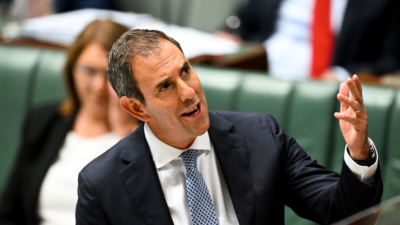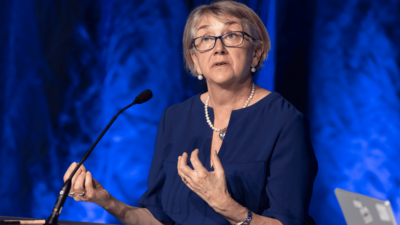-
Sort By
-
Newest
-
Newest
-
Oldest
The vigilantes aren’t back – yet. But the United States’ fiscal position is worse and the spectre of inflation has returned, and this time they would have a much stronger case, according to Ruffer’s Steve Russell.
Capturing structural growth potential is not easy, but in uncertain markets, it’s essential, according to Ninety One. Investors are eager to explore the opportunities in artificial intelligence, and exposure to higher quality companies can successfully position them for an AI-driven future.
The Albanese Government’s tweaks to the Future Fund’s mandate might be measured and well-intentioned, but will inevitably reduce confidence in its ability to fulfill it by introducing uncertainty around where its priorities lie.
The near $100 billion construction industry fund has blundered into an ugly governance and administration debacle, and it’s unlikely that ASIC will let it off easy. Nor should it, with funds increasingly failing to provide their members with key services.
Australia’s superannuation funds have nearly the highest proportion of internal asset management in the world, but there’s plenty of questions hanging over the practice even as funds push into more expensive niche asset classes.
The boondoggle about superannuation marketing spend is mostly theatre, and does nothing to answer the question of what is really in members’ best financial interests.
APRA’s new superannuation expenses data – and the granular information it contains about donut and coffee purchases – begs the question: how much transparency is enough?
The International Monetary Fund says that super funds’ chunky allocations to illiquid assets could be a danger to markets during stress events, but there’s little evidence to support their fears of systemic risk.
Markets are expensive, driven by powerful forces which want to turn a 40 year bull market into the first ever 50 year one. That trend is not one to embrace, and standing in its way could put investors in dire straits, writes Jonathan Ruffer.
Megafunds are set to control trillions in member savings, but there’s still more questions than answers about the future direction and shape of the superannuation system.
Australia’s sovereign wealth fund’s prediction of a tough year for investors didn’t come to pass, but they’re not the only well-resourced manager that missed the mark. For investors, this period is a reminder that investment patterns may exist, but markets certainly aren’t beholden to them.
The Your Future, Your Super performance test is now redundant. The superannuation industry, and its regulators and policymakers, must figure out what comes next.
















